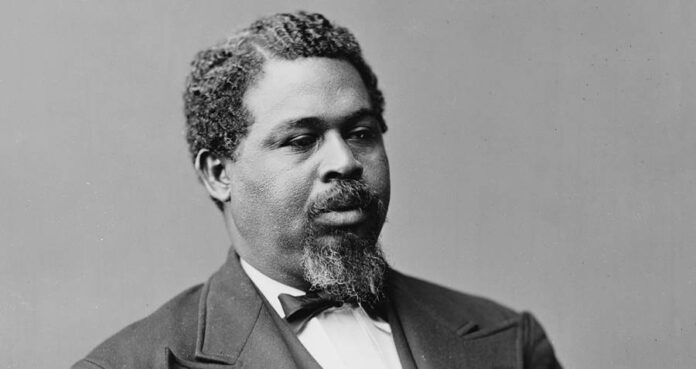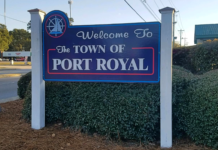The Robert Smalls statue will be the first monument to honor an African-American person on the State House grounds in Columbia, SC, 109 years after his death in Beaufort, SC.
The idea for Smalls’ statue has been brewing for years but has been met with opposition. However, in 2024, the State House and the Senate unanimously approved the proposal, and the monument to the Civil War hero is currently in its design stage.
“The man has done so many great things, it’s just a travesty he has not been honored until now. Heck, it’s also a travesty there isn’t some big Hollywood movie out there about his life,” S.C. Representative Jermaine Johnson told The Associated Press.
Few life stories tell as well as the amazing story of Beaufort’s Robert Smalls. One of the most revered sons in Beaufort SC history, the courage shown by Smalls during his life is the stuff of legend and has inspired so many.
Robert Smalls was born a slave on April 5, 1839 in a cabin behind his owners, the McKees, house at 511 Prince Street in Beaufort. As a young teen he was rented out to work in Charleston and took up boating and learned the local waters around Charleston as a teenager.
After the Civil War broke out, Charleston was smack-dab in the middle of it, and Smalls was a crew member aboard a Confederate supply vessel, the Planter.
Just before dawn on the morning of May 13, 1862, Smalls and a crew composed of fellow slaves slipped The Planter off of the dock. Following a plan, they picked up family members at a rendezvous point then slowly navigated their way through the harbor.
Smalls was wearing the white ship Captain’s wide brimmed straw hat to help hide his identity. He knew the proper Confederate coded signals and was able to get through defense positions and even two checkpoints along the way.
Being cleared, Smalls sailed into the open ocean…and right into freedom. Once outside of Confederate-held waters, Smalls and his crew raised a white flag and surrendered The Planter to the Union fleet that was blockading the harbor.
His story was so big that he toured the North and was met by crowds of well-wishers. His escape was symbolic of the Union cause, and the publication of his name and former enslaved status in northern propaganda was big.
Smalls spent the remainder of the war balancing his role as a spokesperson for African Americans with his service in the Union Armed Forces. He piloted both The Planter, which was outfitted as a troop transport, and later the ironclad Keokuk. Smalls used his intimate knowledge of the Sea Islands of the Lowcountry to advance the Union military campaign in nearly 17 engagements.
After he returned home to Beaufort, he was then elected to 5 terms as a Congressman in the U.S. House of Representatives. Smalls also purchased his former owner’s house, and he was generous to the economically devastated family. He took care of Mrs. McKee until the day she passed away, right there in the house.
Smalls died in the house on February 22, 1915. His funeral was said to have been the largest in the history of Beaufort. He’s buried in the yard at the Tabernacle Baptist Church on Craven Street. Streets, schools and lots of other things bear his name in the area. The space next to the Robert Smalls grave in Beaufort will also be the site of the much anticipated Harriet Tubman Monument, when erected.
Some lawmakers are contemplating the best way to honor Smalls.
Some want to depict him as the ship pilot who navigated others to freedom. Others would like to recognize him as the politician who advocated for education and voting rights for Black Americans.
The state-implemented Robert Smalls Monument Commission will work together to develop a design for the statue.










